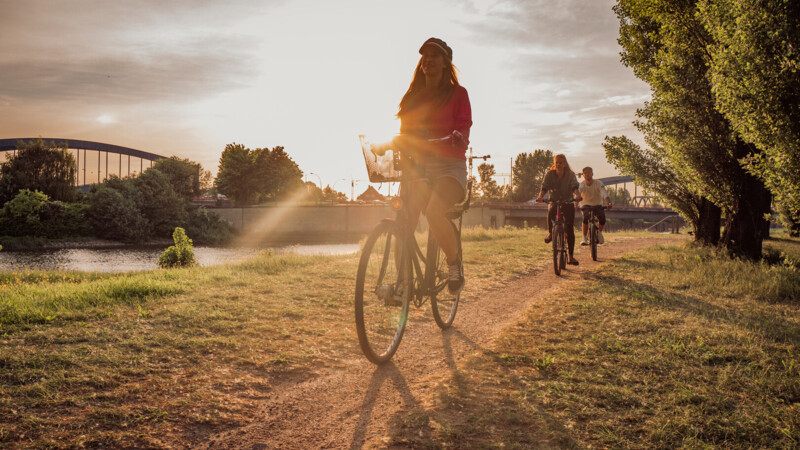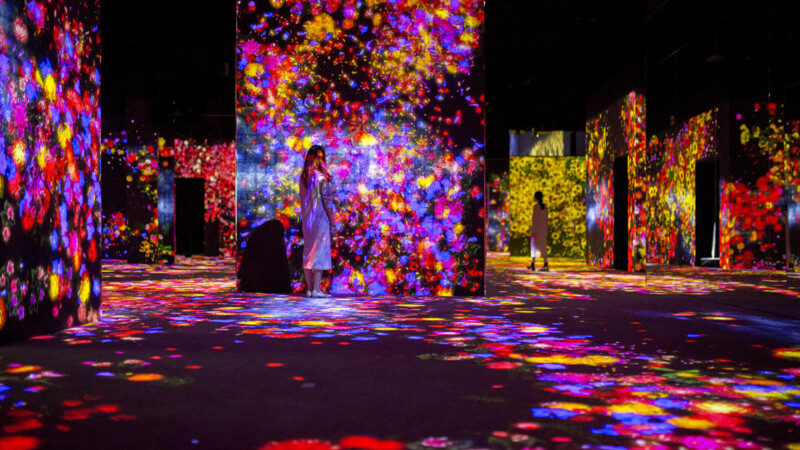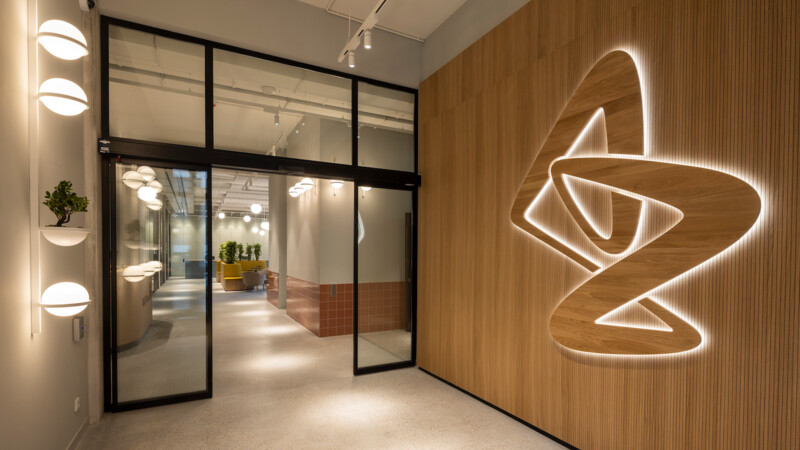"It will be an inn for everyone," said Jens Sroka, founder of Heimathafen Hotels. Overnight stays in the Camping Ground will cost as little as EUR 19.90 per night. "Our room categories range from tiny, small and medium, large or fancy to our two 'fat pants suites', one of which was designed by TV presenter Barbara Schöneberger and another by musician Jan Delay. And we'll have 27 art rooms, designed by artists from all over the world with art literally growing out of the rooms into the hall." Villa Viva's staircase is designed as an art gallery and parts of the outer wall become an artistic projection surface with lots of greenery. "We won over the urban art artists TenTen for the RoofDropBar. Their artworks give you the feeling of looking through a crack into infinity," said Sroka. The proceeds from a good glass of wine or other drinks and beverages taken in such lofty heights will help finance access to fresh water for everyone. Neither the construction nor management of Villa Viva will be financed from donations, Sroka and Adrion stressed.
Board and lodging are just beginning in Villa Viva which is set to become a meeting place with plenty of art and networking. A joint venture by the non-profit organisation, Viva con Agua and Heimathafen Hotels, 60 per cent of the proceeds go to Water, Sanitation and Hygiene (WASH) projects all over the world which the NGO has carried out since 2006. A whole series of new wells may yet be financed when Villa Viva opens its doors in late 2023. The twelve-storey building in Hamburg includes almost 140 rooms, a restaurant and RoofDrop(!) Bar, spaces for art, culture and yoga, conferences and an “Office Playground” that promotes socially responsible entrepreneurship as well as Viva con Agua’s offices after the foundation stone was laid on April 1, 2022 in Münzviertel near the main railway station.
Art throughout building
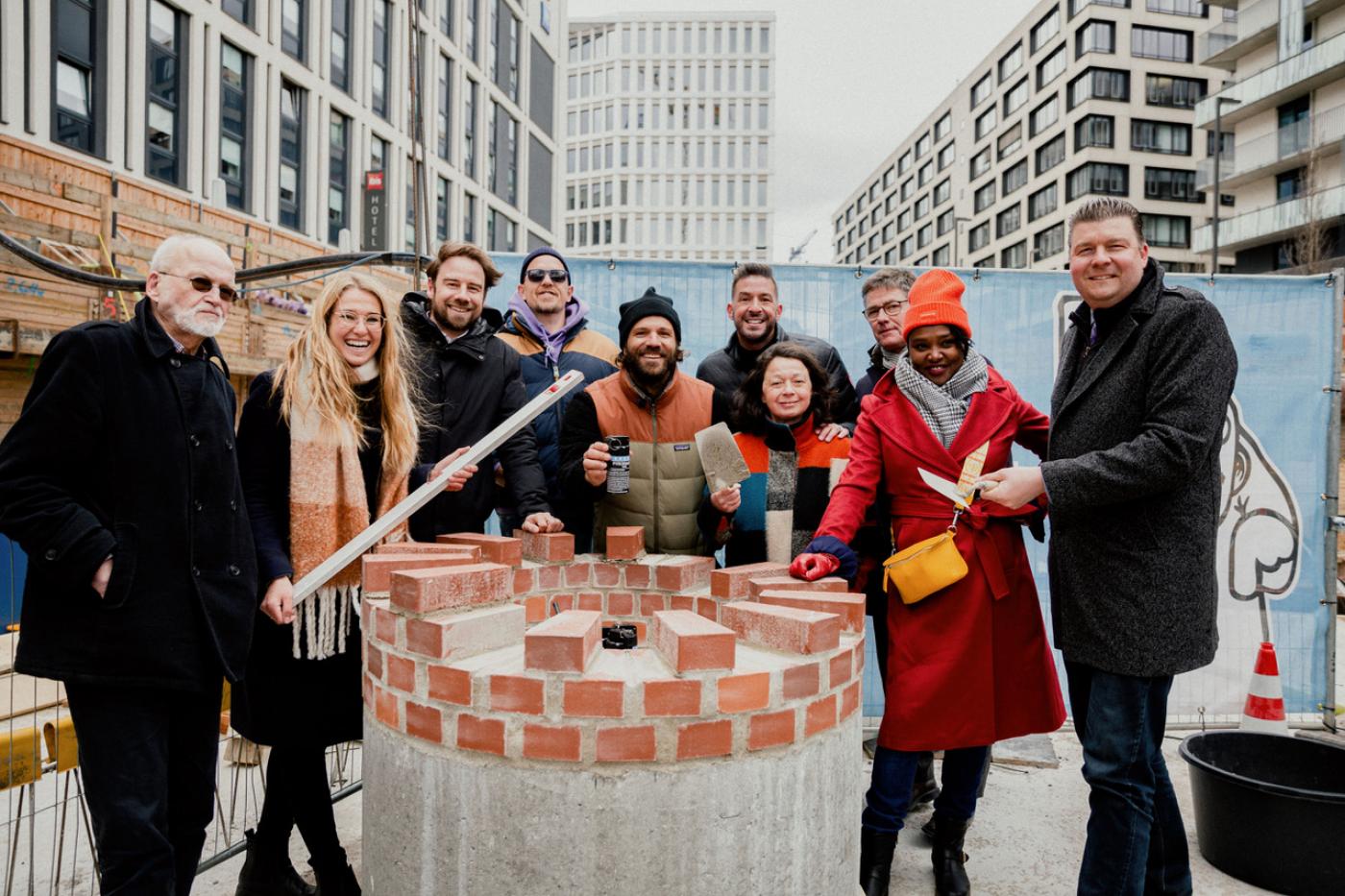
Best case for social business
A 17-member group of shareholders including the Braun brothers, founders of Miniatur Wunderland, Delay, Bela B and Kevin Kuranyi - is contributing an initial sum of slightly under EUR 6 million. The remainder of the EUR 30 million investment is being financed by the Umweltbank. "Our shareholder gang is getting involved in a long-term commitment. All the supporters commit to a financing period of 18 years and hold only 33 per cent of Villa Viva Holding for 100 per cent of their capital. This is a real social business," Sroka stressed. The co-operation between Heimathafen Hotels and Viva con Agua dates back to 2013. "I have always liked the NGO's special approach in which various people in sports, art and music create a good atmosphere thereby encouraging others to do good," Sroka noted. Viva con Agua was tasked with designing a junior suite for a Beach Motel in Sankt Peter-Ording. Some 25 per cent of the revenue from overnight stays goes to aid projects. "Around EUR 9,000 to EUR 12,000 now flow to Viva con Agua every year," said Sroka, who hails from a hotelier family.
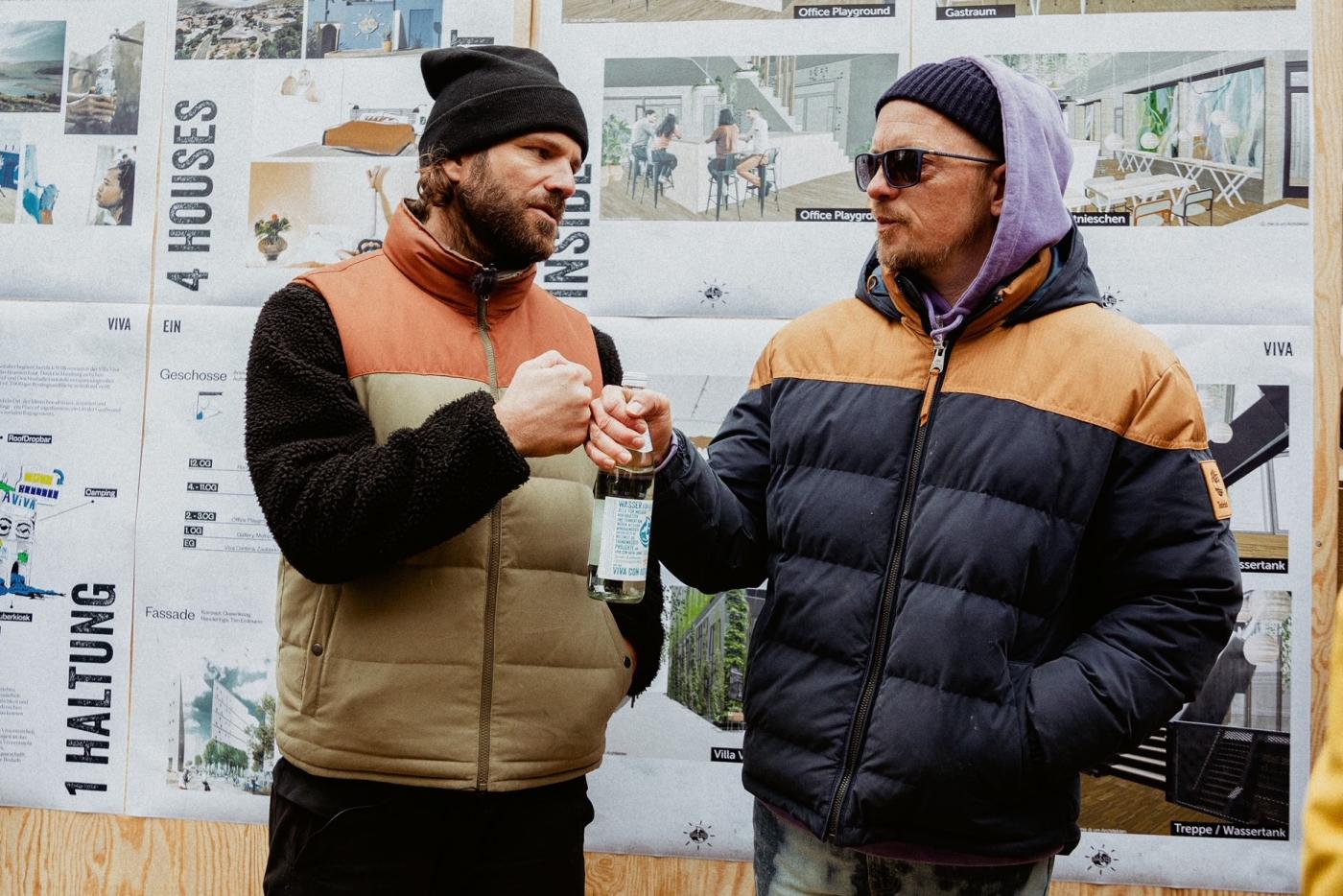
Hospitality in his genes
Sroka's father owned the Ambassador on Nord Kanal Street near the present site of Villa Viva. Sroka himself is a trained hotelier and gained experience in the United States and Asia before laying the foundation for the Heimathafen Group in 2007 with the opening of the Strandgut Resort in Sankt Peter-Ording. Today, the group consists of six establishments and is laying plans for three more including Villa Viva as the first project in Hamburg. Initiated by Adrion, he then asked Sroka to come on board as operator. "Viva con Agua has grown strongly in recent years, and their current location in the Karolinenviertel is bursting at the seams. The city then offered us the property in the Münzviertel. That's how the idea came about," said Sroka. Apart from the fountain-building inn, the two founders also hope to boost social development in the district with their concept.
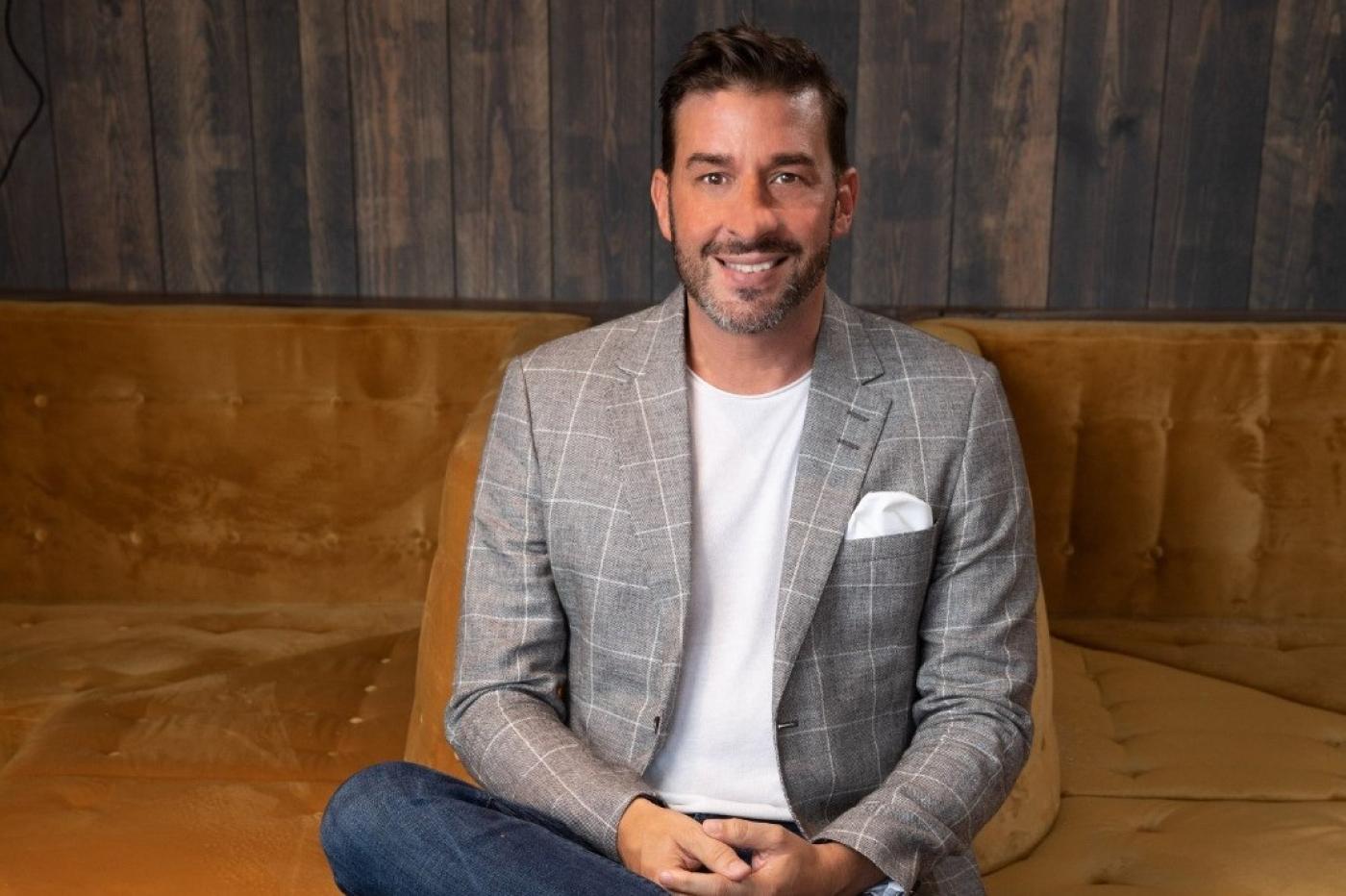
Becoming part of district
Villa Viva will create around 65 jobs. The building is designed to leave as small an ecological footprint as possible, during construction and operation. Recycled concrete, solar thermal energy, hot water tanks, rainwater collection systems and a special wastewater treatment system are just some of the approaches. Sroka and Adrion have joined the Münzviertel district advisory board to pre-empt being perceived as a foreign entity. "We also want to invite people in the district to join us in our restaurant and bar. The district has the highest density of social institutions per inhabitant, but few gastronomic offers," said Sroka. Visitors to the restaurant can expect various dishes from regions where Viva con Agua is active. And Hamburg-based chefs and restaurateurs have also announced special recipes for Villa Viva. "We will offer our dishes in an out-of-house sale through the kitchen window to the employees in district. And if you want to pay for a coffee, a soup or a main course, you are paying for the homeless."
ys/pb
Read other parts in our series on "Unusual hotels and innovative use concepts in Hamburg":
1) Hard rock hotel to open in flak tower on Heiligengeistfeld
2) HNX combines co-living and working plus a tree per room
Sources and further information
More
Similar articles

Chocoversum celebrating anniversary as demand for chocolate rises
